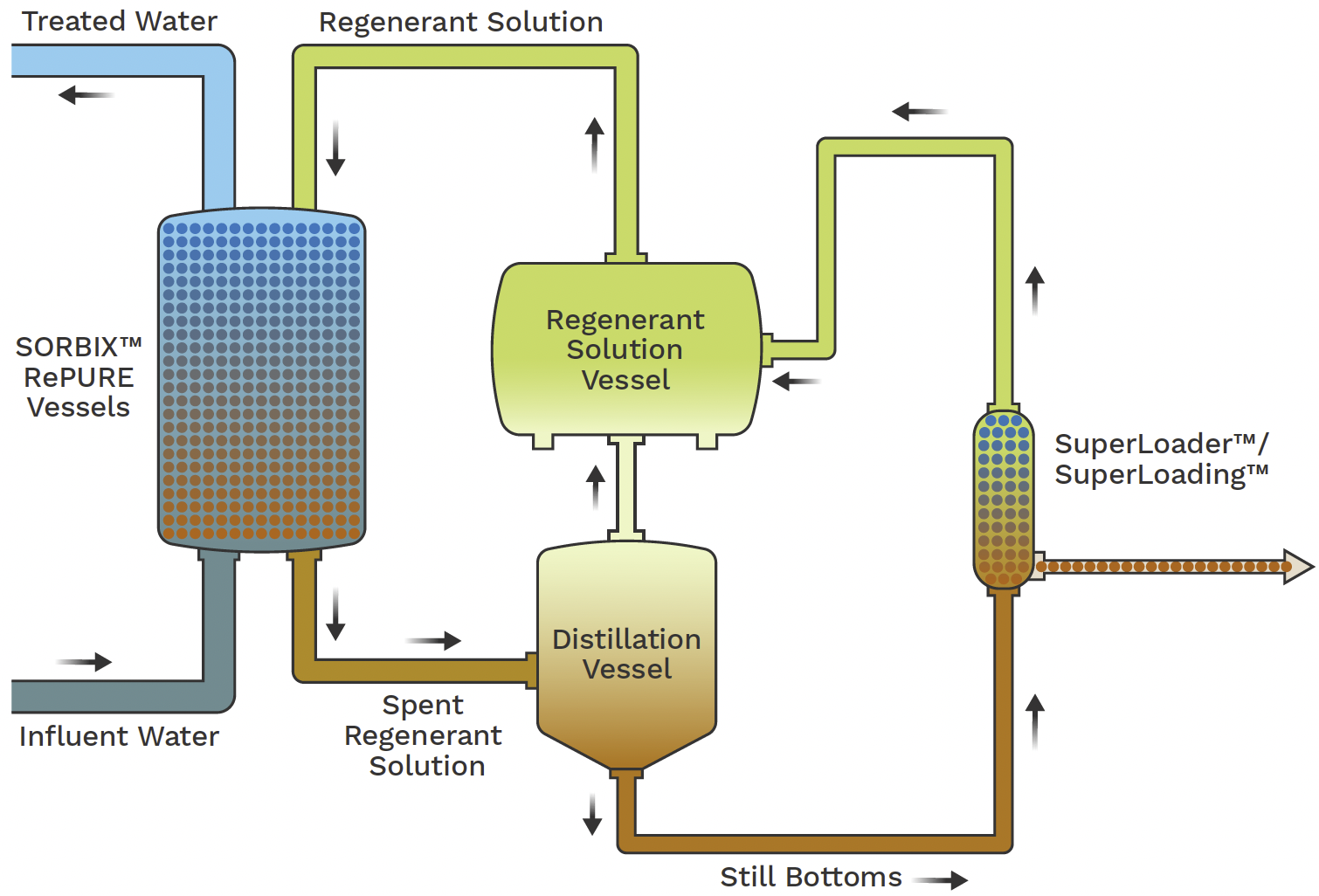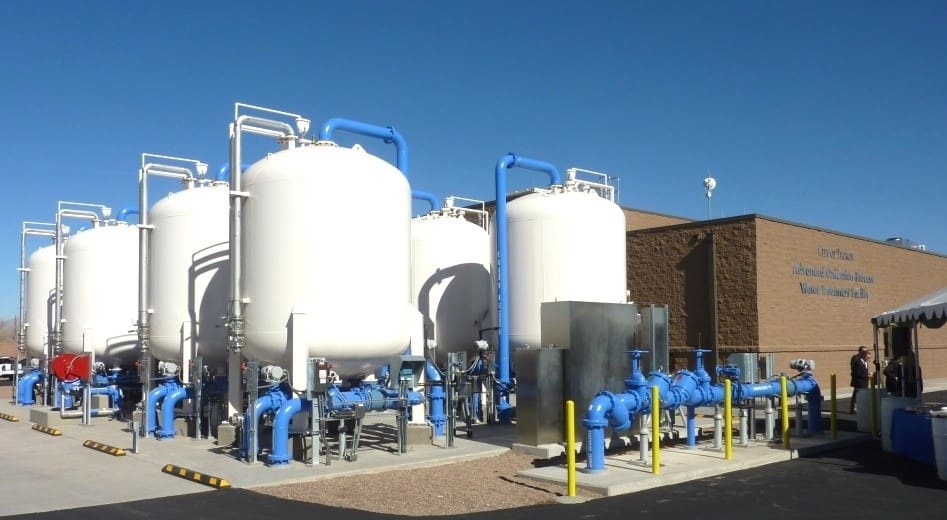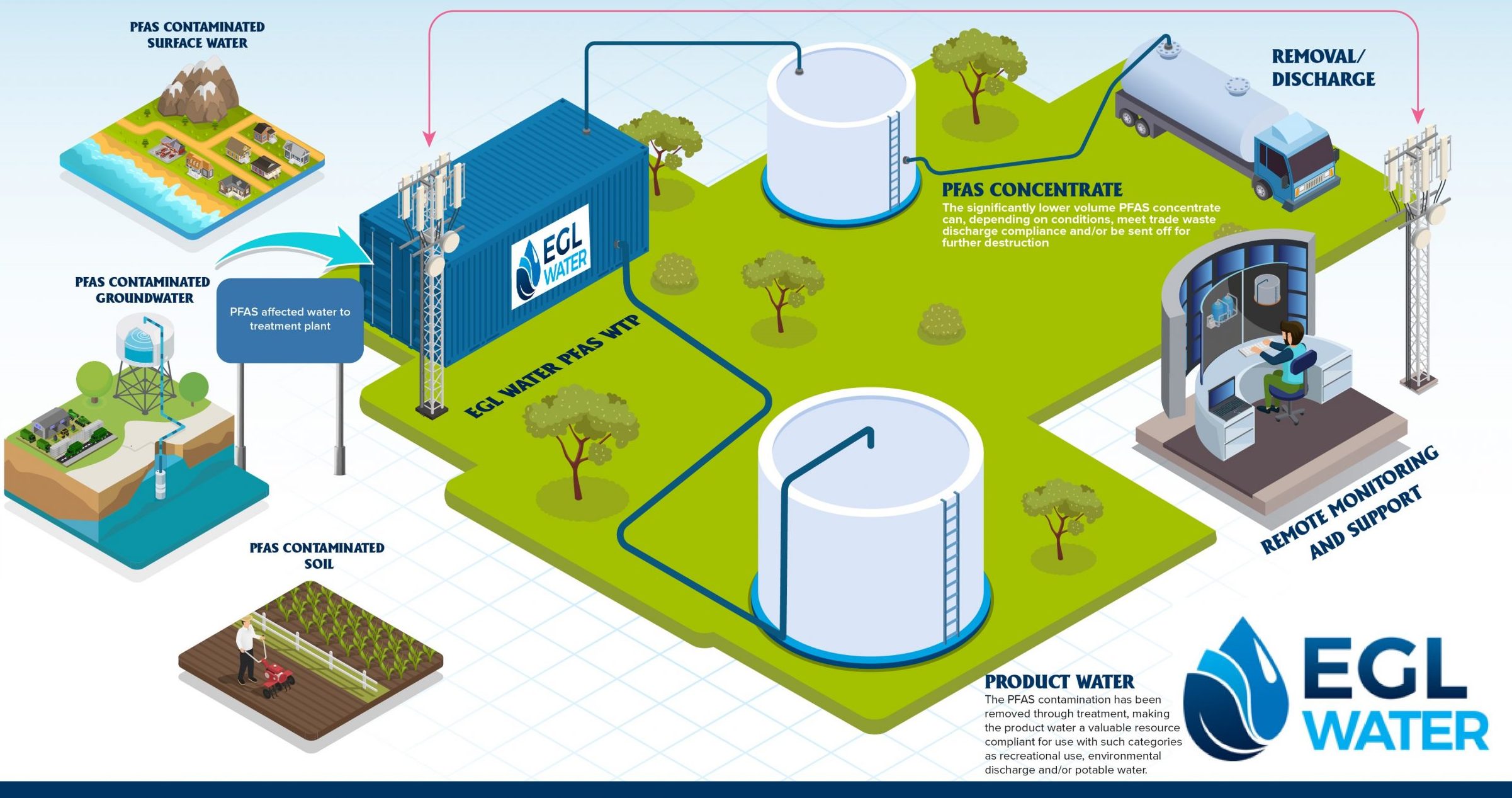The Importance of PFAS Treatment in Restoring Contaminated Water
The Importance of PFAS Treatment in Restoring Contaminated Water
Blog Article
Exactly How PFAS Treatment Makes Certain Clean and Sustainable Water
The presence of PFAS, typically known as "permanently chemicals," positions considerable difficulties to water top quality and public wellness. The implications of these treatments extend beyond immediate health and wellness advantages; they increase crucial questions regarding long-lasting water administration approaches that have to be addressed to ensure a resilient future.

Recognizing PFAS Contamination
PFAS, or per- and polyfluoroalkyl substances, have actually become a significant ecological concern as a result of their extensive frequency and persistence in the setting. These synthetic chemicals have actually been utilized in various commercial applications and customer products, consisting of non-stick cooking equipment, waterproof apparel, and food packaging, due to their distinct properties such as water and grease resistance.
The contamination of soil and water sources by PFAS takes place largely through industrial discharges, firefighting foam usage, and leaching from land fills. pfas management. When launched, these compounds are immune to degradation, leading to their accumulation in the setting. This perseverance raises vital problems, as PFAS can travel cross countries through groundwater and surface water supply, influencing alcohol consumption water products and ecological communities

Health Dangers of PFAS
The determination of PFAS in the environment raises considerable health and wellness concerns for people exposed to these substances. Called "permanently chemicals," PFAS do not damage down conveniently and can accumulate in human bodies in time. Study has actually linked PFAS exposure to different damaging health impacts, including body immune system dysfunction, liver damages, and raised threat of certain cancers - pfas management. Especially, researches have actually shown elevated cholesterol levels and prospective effects on reproductive and developmental health and wellness, specifically in expectant people and babies.
The universality of PFAS in customer products, such as non-stick pots and pans, water-repellent textiles, and food packaging, additional amplifies the risk of exposure. Consuming alcohol water infected with PFAS is a considerable issue, as these chemicals can seep right into groundwater sources. At risk populations, consisting of children and those living near industrial websites, may deal with heightened dangers as a result of their developing systems and prospective for greater exposure levels.
As understanding of these wellness risks proceeds to grow, regulative firms are starting to establish guidelines for PFAS degrees in alcohol consumption water. Public health efforts are vital to reduce exposure and secure areas from the long-term impacts of these harmful materials.

Innovative Therapy Technologies
How can we properly deal with the obstacles positioned by PFAS contamination in water sources? Ingenious treatment modern technologies are emerging as critical options in the quest for tidy water. These methods concentrate on the removal or damage of per- and polyfluoroalkyl substances (PFAS), which are infamous for their persistence in the setting.
One promising technique is adsorption using sophisticated products, such as triggered carbon and ion exchange Related Site materials. These materials have revealed efficacy in catching PFAS molecules from water. One more noteworthy innovation is membrane layer filtering, which makes use of nanofiltration and reverse osmosis to different impurities at the molecular level, hence supplying an obstacle versus PFAS.
Furthermore, progressed oxidation procedures (AOPs) employ strong oxidants to break down PFAS substances right into safe byproducts. This method is especially reliable for dealing with very contaminated water sources. Bioremediation methods, using specific microorganisms, are likewise being discovered to weaken PFAS.
As research continues, hybrid systems that integrate multiple technologies may supply improved efficiency, resolving the intricacies of PFAS contamination. The development and application of these ingenious therapy modern technologies are important actions towards making certain the safety and security and sustainability of our water sources.
Advantages of Reliable PFAS Therapy
Successfully treating PFAS contamination in water sources considerably enhances public health and ecological safety and security. PFAS, usually described as "permanently chemicals," are resistant to degradation and can accumulate in the body, causing severe health and wellness dangers such as cancer, liver view damage, and immune system disorder. By implementing reliable therapy techniques, neighborhoods can decrease exposure to these unsafe materials, inevitably enhancing the health outcomes of their populaces.
Additionally, successful PFAS therapy adds to the conservation of local communities. Contaminated water can detrimentally influence marine life and interfere with the delicate equilibrium of neighborhood environments. By making sure clean water, therapy procedures protect biodiversity and keep environmental integrity.
In addition, effective PFAS removal can foster public self-confidence in water quality. When areas are guaranteed that their drinking water is totally free from harmful pollutants, it promotes a feeling of security and health. This depend on is essential for area interaction and assistance for ongoing water administration campaigns.
Future of Water Sustainability
Amid expanding issues concerning navigate to these guys water top quality and scarcity, the future of water sustainability pivots on innovative techniques and collaborative initiatives. As areas deal with the impending dangers of contaminants like PFAS, the development of advanced therapy modern technologies is vital. These technologies not only concentrate on the elimination of damaging materials but additionally promote the reuse and recycling of water, thus lowering general demand.
Moreover, effective water governance plays a critical role in making sure lasting practices. Policymakers have to integrate clinical research study with governing structures to develop clear standards for water usage and therapy. Stakeholder involvement, including neighborhood neighborhoods and markets, cultivates a sense of shared obligation and motivates sustainable practices throughout different industries.
Investment in framework is also essential; upgrading aging systems to include modern-day filtration and purification methods can dramatically boost water quality. Additionally, welcoming eco-friendly technologies, such as all-natural filtering systems, can give environmentally friendly services.
Eventually, the future of water sustainability hinges on an all natural technique that incorporates innovation, plan, and community participation. By prioritizing these elements, we can protect our water sources for generations to come, ensuring tidy and lasting water for all.
Final Thought
In verdict, the efficient treatment of PFAS is essential for ensuring clean and lasting water. Inevitably, durable PFAS therapy methods contribute to long-lasting durability in water management, promoting public trust fund in water high quality and promoting sustainable practices.
Report this page